This website uses cookies so that we can provide you with the best user experience possible. Cookie information is stored in your browser and performs functions such as recognising you when you return to our website and helping our team to understand which sections of the website you find most interesting and useful.
4 million euros from all available EU programs – the secrets of Ivano-Frankivsk’s success
For a week, 15 community project managers from Kharkiv, Zaporizhzhia, Sumy, Odesa, and other regions of Ukraine visited Ivano-Frankivsk, Chortkiv, and Kopychyntsi as part of the Academy of Project Management by Cities4Cities | United4Ukraine, where they saw how different successful project management models work at the local level.
Read more about Ivano-Frankivsk in this article.
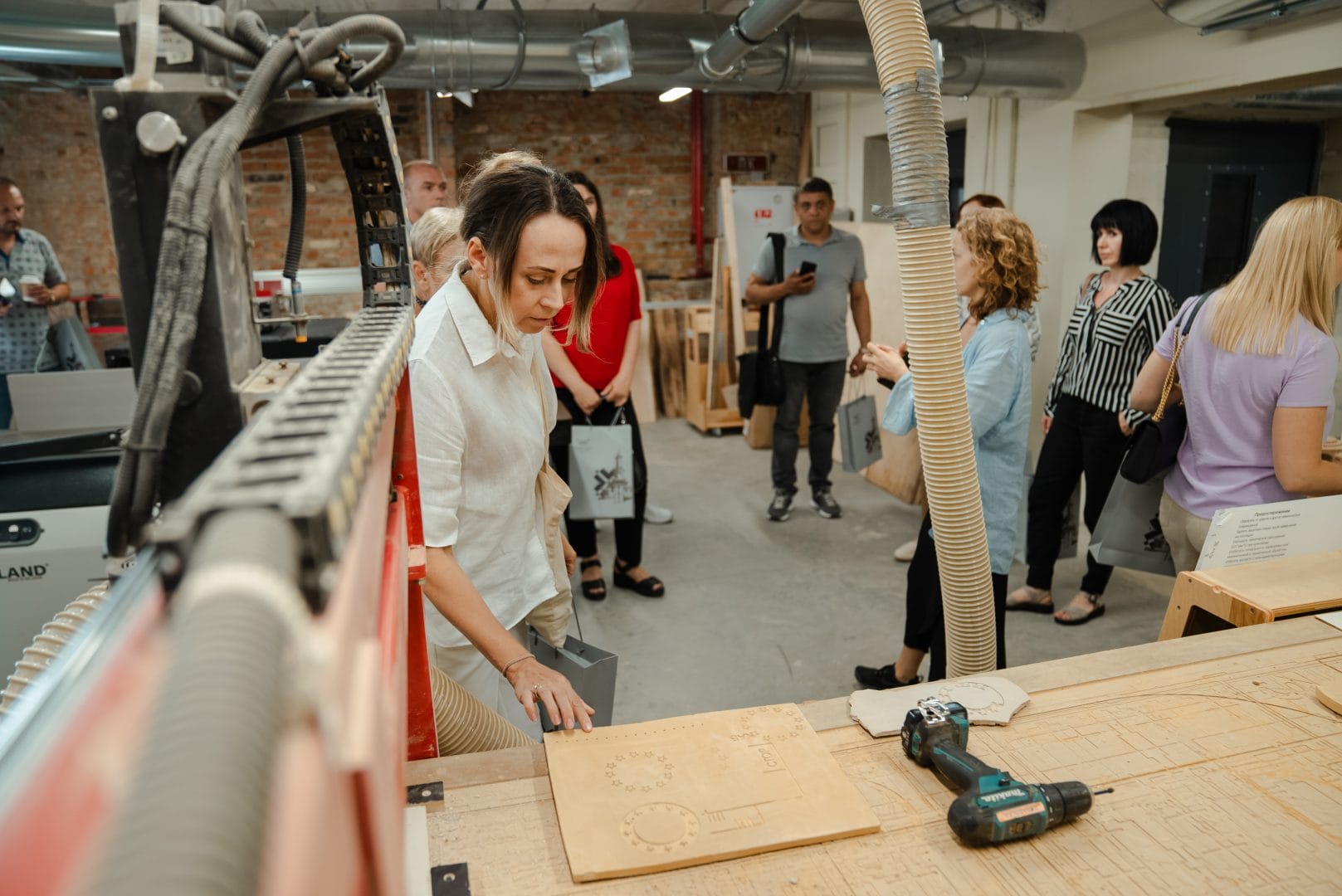
European projects
Today, Ivano-Frankivsk is a leader in the implementation of Interreg projects, which the city is able to implement through cross-border cooperation with the EU. Today, they have already managed to implement 9 projects and win 3 more new ones within all European programs available to them, namely: Poland-Ukraine, Romania-Ukraine, Hungary-Slovakia-Romania-Ukraine, and the Danube Transnational Programme.
Thanks to this, they managed to attract investments of more than €4 million to implement projects in various fields, from memory culture to support for IDPs and vocational schools.
A great advantage of cross-border cooperation programs is the ability to implement hard infrastructure projects, so projects allow for capital construction and equipment purchases, which, especially in times of war, is not so easy to do with local budget funds. Thanks to previous experience and reputation and constant communication, projects can be approached flexibly – to receive additional funding, extend implementation deadlines, or find ways to defend priority spending.
“The Danube Programme does not allow capital construction, only the purchase of equipment. As part of the UrbforDan project, we wanted to preserve the suburban forests in the Vovchynets Hills near Ivano-Frankivsk and increase their tourist potential by equipping them with wooden recreational facilities. And through long-term communications, we were able to prove that this can be interpreted as equipment,” says Ihor Popadiuk, director of the department, sharing his experience with the participants of the visit.
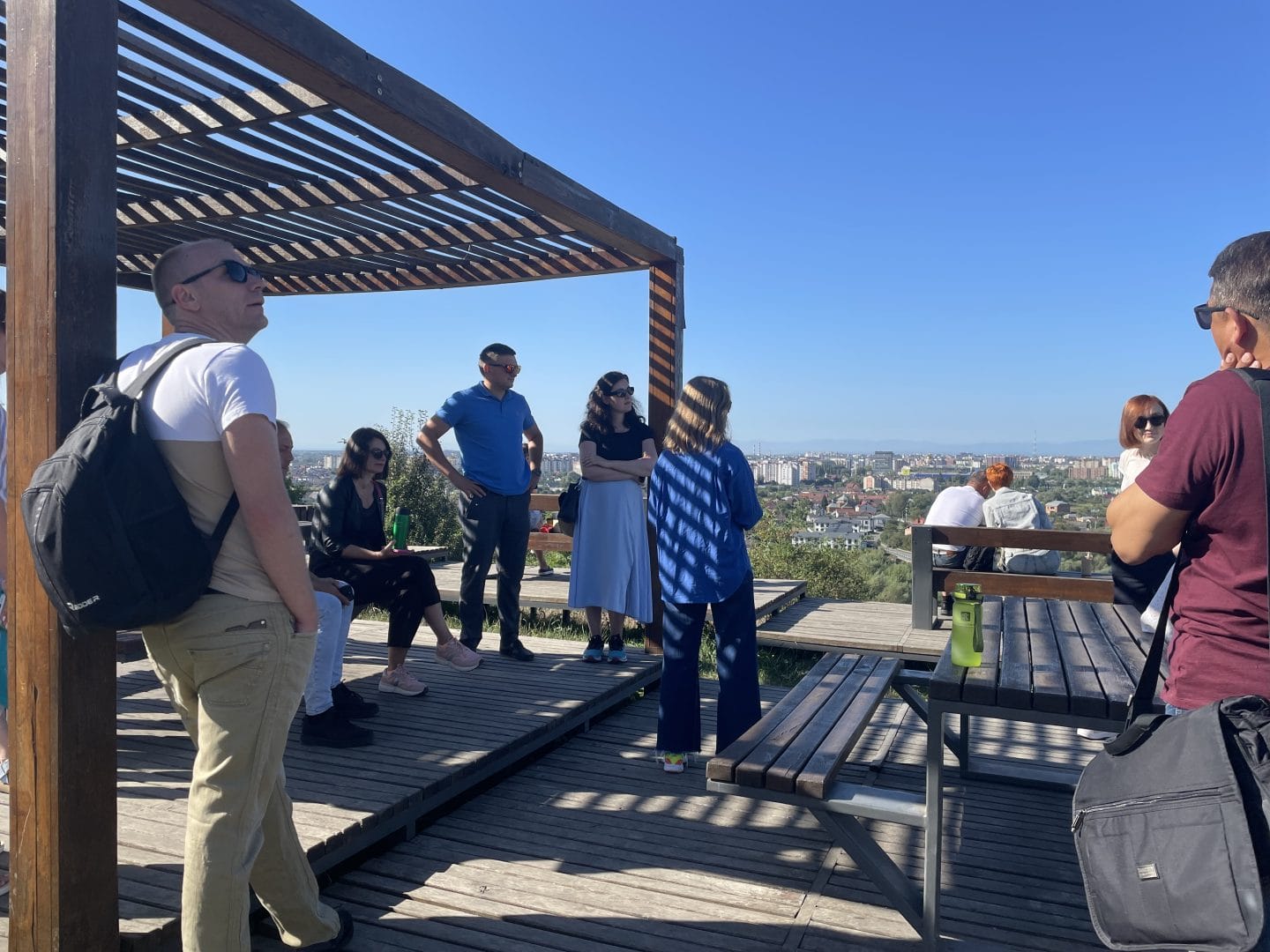
Ivano-Frankivsk also joined the project this year as part of the new Interreg Europe program, which has become available to all communities in Ukraine, and will work with other partners in Europe to improve the energy efficiency of city hospitals.
“Usually, new partners from the 7 EU candidate countries that have joined projects already being implemented within Interreg Europe have the opportunity to be observers, attend events, and learn. But we decided for ourselves that this did not suit us, we want to work on an equal footing with other partners. And we were allowed to include funds in the budget for an energy efficiency analysis of all city hospitals,” says Ihor Popadiuk.
The team has also submitted 3 more applications for a new project competition under this program. By the way, many projects are also submitted to competitions under other programs. For example, Ivano-Frankivsk submitted 14 project applications at the same time for the recent calls for proposals under the Romania-Ukraine and Hungary-Slovakia-Romania-Ukraine programs. The Department’s experience shows that the more applications a city submits, the greater its chances of success. For different programs, the percentage of winning applications varies from 10 to 30%, so you should be prepared to invest time in developing project ideas, even if they are not implemented.
A bit about the team
In Ivano-Frankivsk, the center of project management is the Department of Investment Policy, Projects, International Relations, Tourism, and City Promotion of the Ivano-Frankivsk City Council. We started working with international projects more than 8 years ago, without much experience, so we moved forward through trial and error.
“We are currently actively working on changing the structure of the Department, as the number of projects is growing, and therefore we need to build more capacity,” says Ihor Popadiuk, Director of the Department, ”Also, during our work, we have developed several important solutions that help us work more efficiently. These include weekly project planning meetings and a developed contract management policy within the department.”
The Department has a staff of 21 employees. In addition to project activities, the Department is also engaged in international cooperation, city promotion, and tourism.
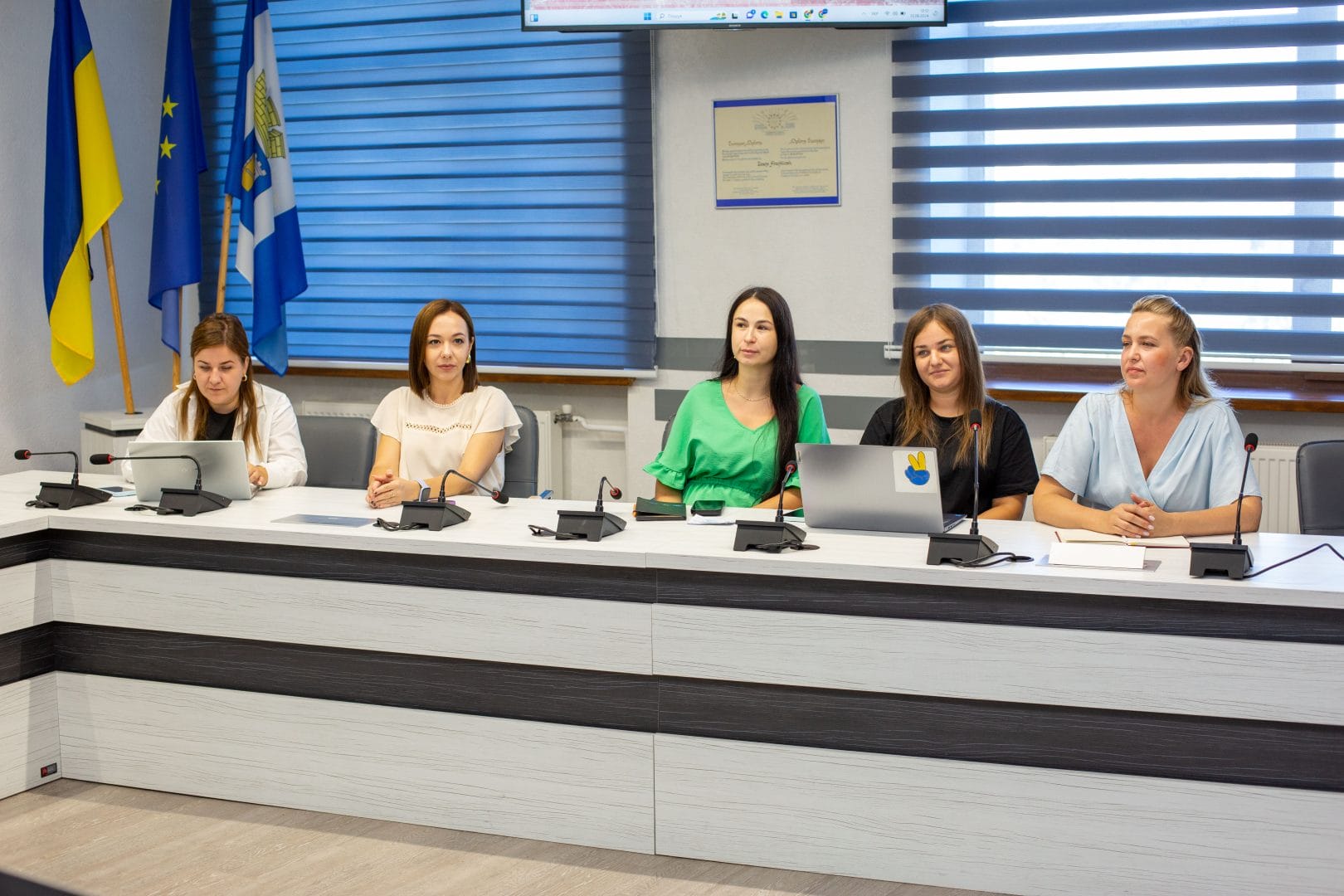
Project Department planning meetings are held weekly and last up to 2 hours. Trello and Google tools are used to identify specific tasks and responsible persons. A separate email with a Google Drive is created for each project.
By the way, one of the Department’s offices is located at Promprylad, which is a great example of the synergy between the government, business, and the public and helps all of them attract investors.
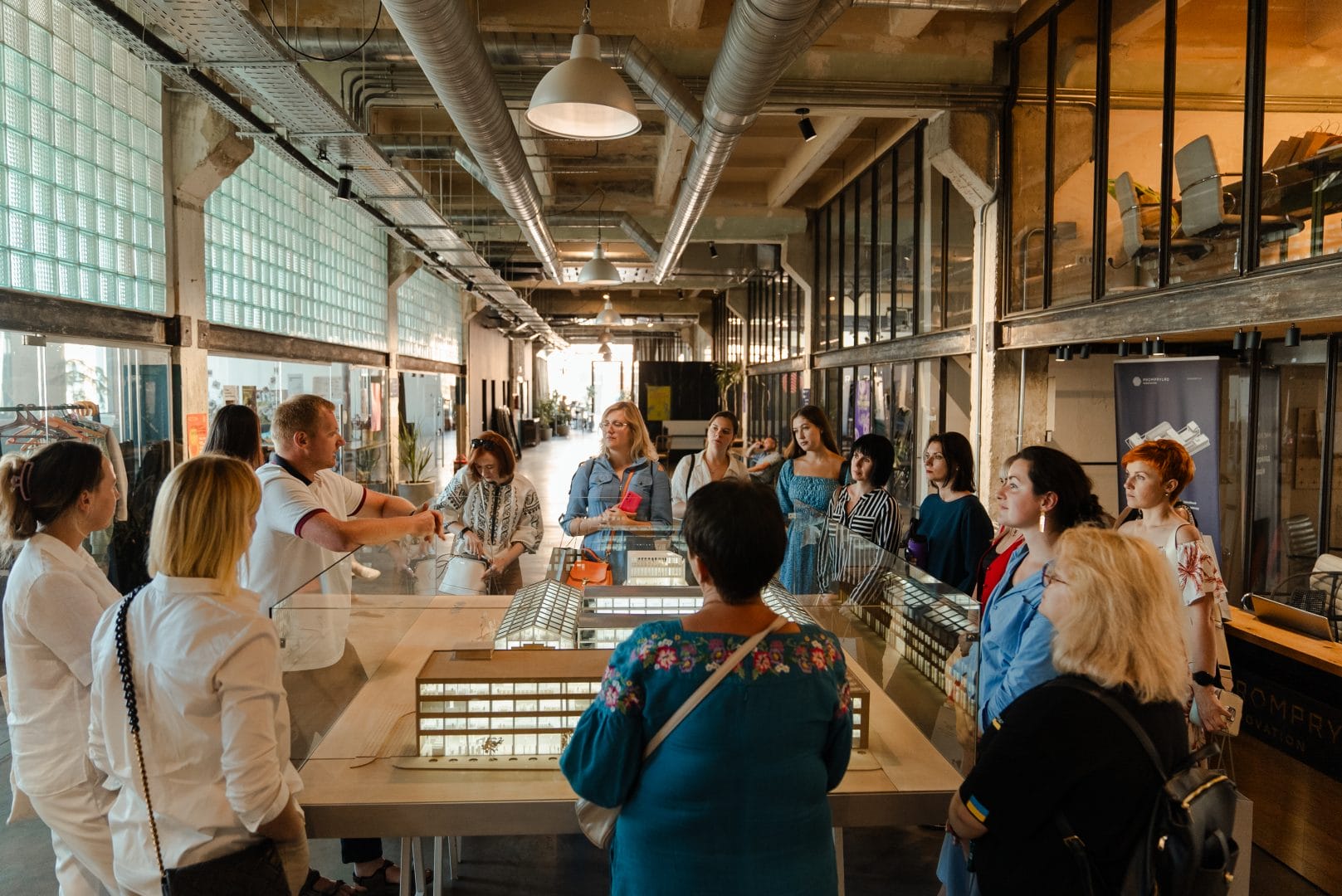
Project inspectors in communities
Also, the Department’s staffing table provides for the positions of project inspectors, which are currently vacant, but in the event of new projects, it is planned to hire project managers – not civil servants – for these positions. This model helps to solve the problem of the inability to pay civil servants at the expense of international projects and allows hiring professional project managers to implement a particular project. By the way, this model is already being actively used by other communities in Ukraine that participate in European Union programs, having adopted the experience of Ivano-Frankivsk.
Long-term planning
In order to work effectively with projects, Ivano-Frankivsk has a long-term financial planning system in place. 100% of the cost of the winning projects is allocated to the city budget as separate lines, which allows projects to be implemented without delays and without waiting for the next tranche of the project.
This is important because each European program has its own co-financing model and reporting rules. In most cases, at the start of the project, beneficiaries receive only 30% of the project cost, while the remaining tranches come after verification of interim reports, which often delays project implementation. The final tranche comes only after the project is audited by an authorized body – the State Audit Service or the Accounting Chamber after its final implementation.
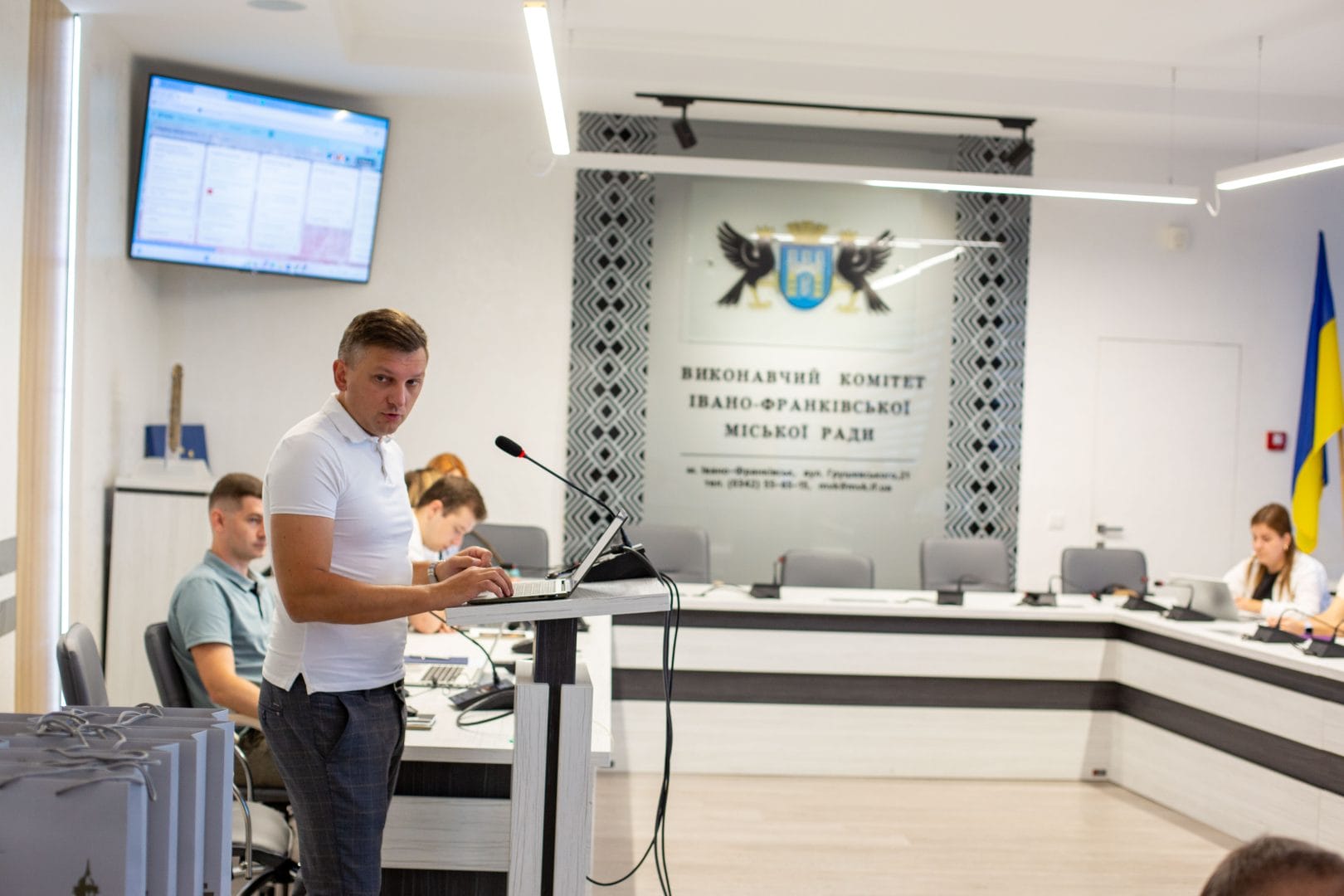
The experience of Ivano-Frankivsk also shows how important it is to resolve all land and property issues before submitting a project, and it is important to study how these issues are treated by European programs. Many programs require that the institution that owns both the building and the land plot for the project be the applicant for the project competition. But very often, municipal institutions such as hospitals, water utilities, or educational institutions simply do not have project managers or co-financing budgets. Therefore, this problem is solved in Ivano-Frankivsk by concluding trilateral agreements.
Communication is the basis of everything
The life of a project manager is a constant change management, they say in Ivano-Frankivsk. Many projects began in the pre-war and even pre-digital times, so many things have to be re-planned during implementation.
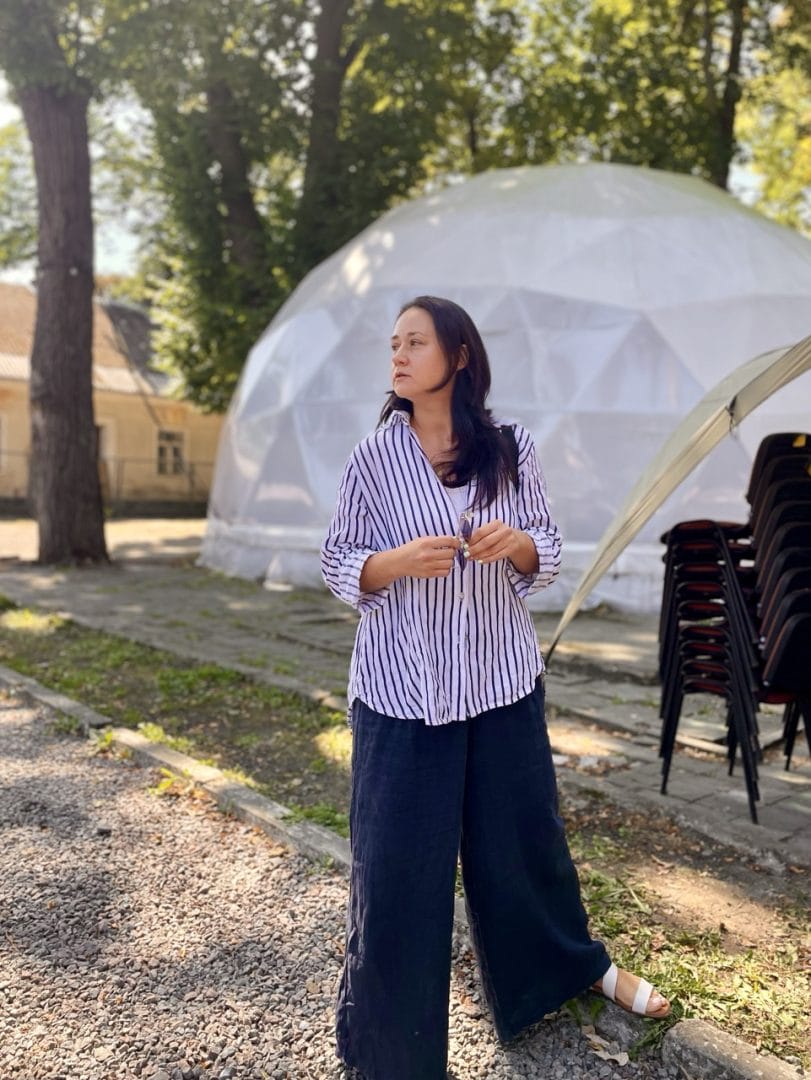
“I devote a lot of time to internal communication with partners, with contractors, with the team,” shares her experience Yulia Bavoliak, project manager of the Back to Our Common Roots (ROOTS) project, which was implemented under the Joint Operational Program Romania-Ukraine 2014-2020.
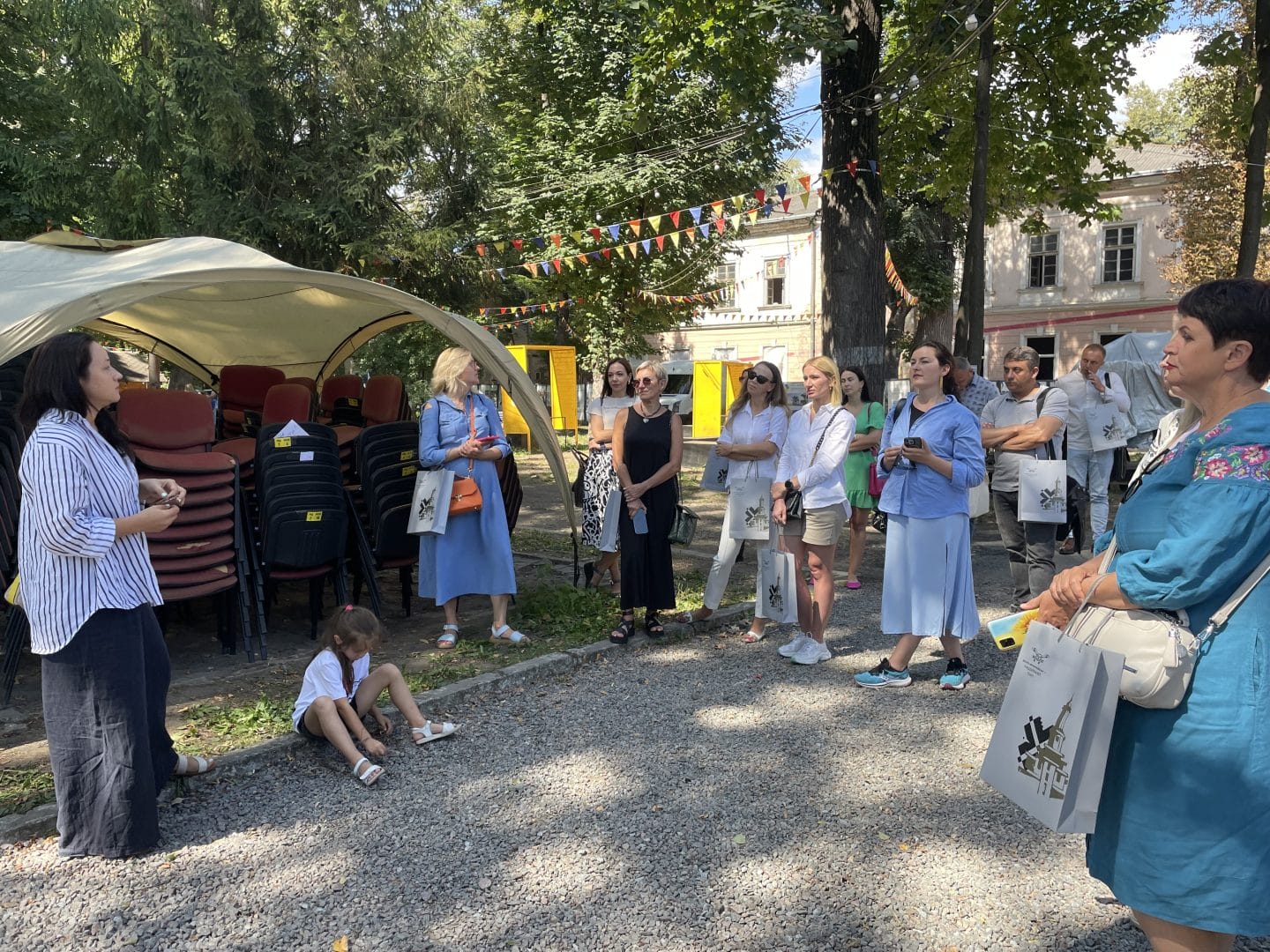
She adds:
“Our project had a budget of 1 million euros (ed. – the total budget for the two partners), of which only 340 thousand were to be spent on the reconstruction of the Potocki Palace. But it is not always possible to foresee everything in a project. We originally planned to implement this project at Bastion, in another building. But then the roof leaked, and there were problems with drainage. But we always communicated with our partners in Romania, the city council, and tried to find solutions together. As a result, we spent 420 thousand euros of European funds on the project, and the city is also helping with sewage as part of another project. In project work, synergy is important, it’s important to start, and then one project pushes another.”
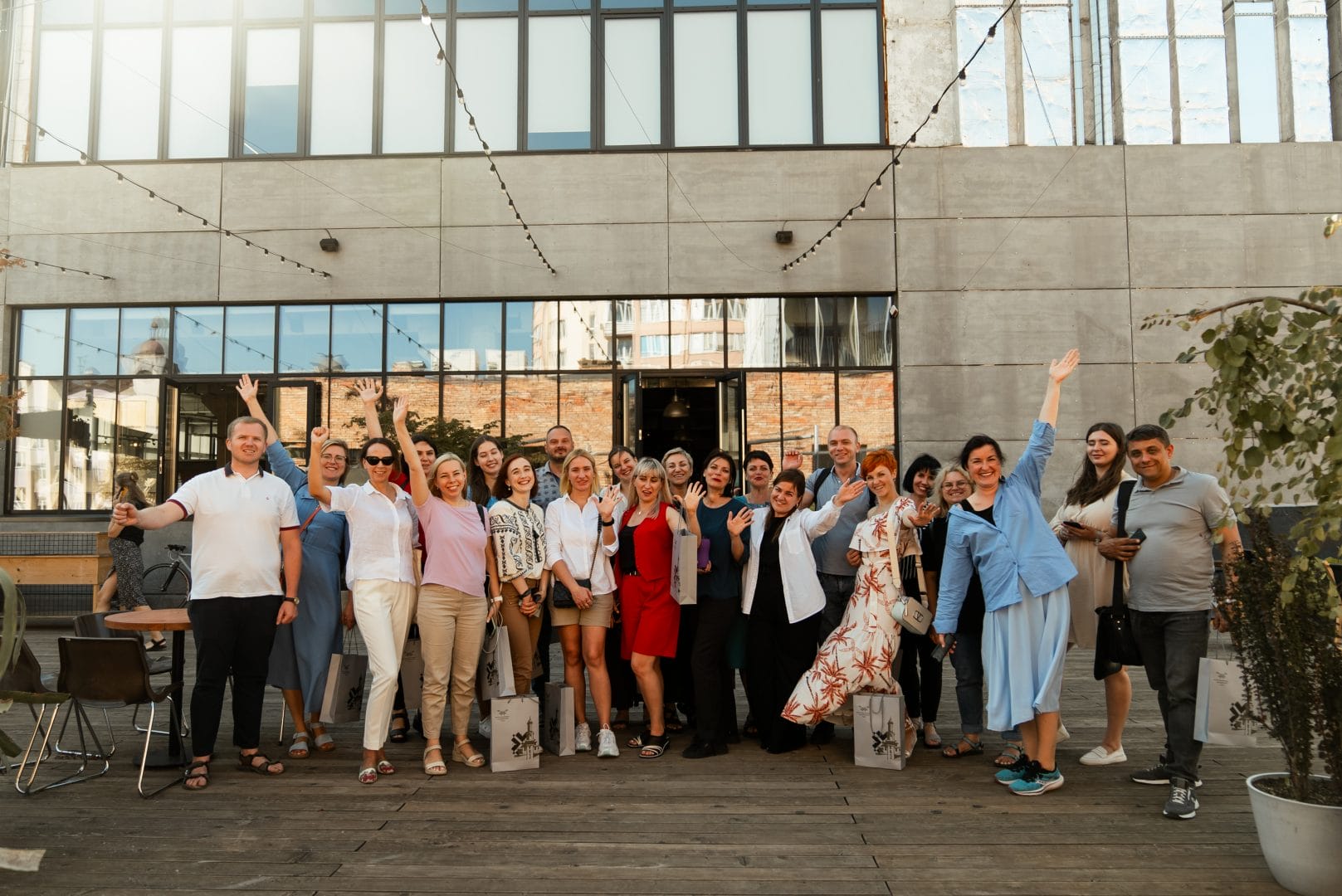
The project “Academy of Project Management and International Cooperation” of the Cities4Cities | United4Ukraine initiative is implemented with the support of the USAID Ukraine Confidence Building Initiative (UCBI).
As a reminder, the Cities4Cities | United4Ukraine initiative has launched the Cities4Cities ACADEMY training platform. The platform also offers an online course “International Cooperation for Communities,” which has already been completed by 1000 community representatives.
Cities4Cities United4Ukraine are partnership initiatives that joined forces in September 2022. The project helps Ukrainian communities establish inter-municipal partnerships with municipalities in Europe. Cities4Cities was founded by the city of Sindelfinden (Germany) under the auspices of the Congress of Local and Regional Authorities of the Council of Europe. United4Ukraine was launched by SALAR International and the city of Lviv (Ukraine) with the support of the Swedish International Development Cooperation Agency (Sida).
